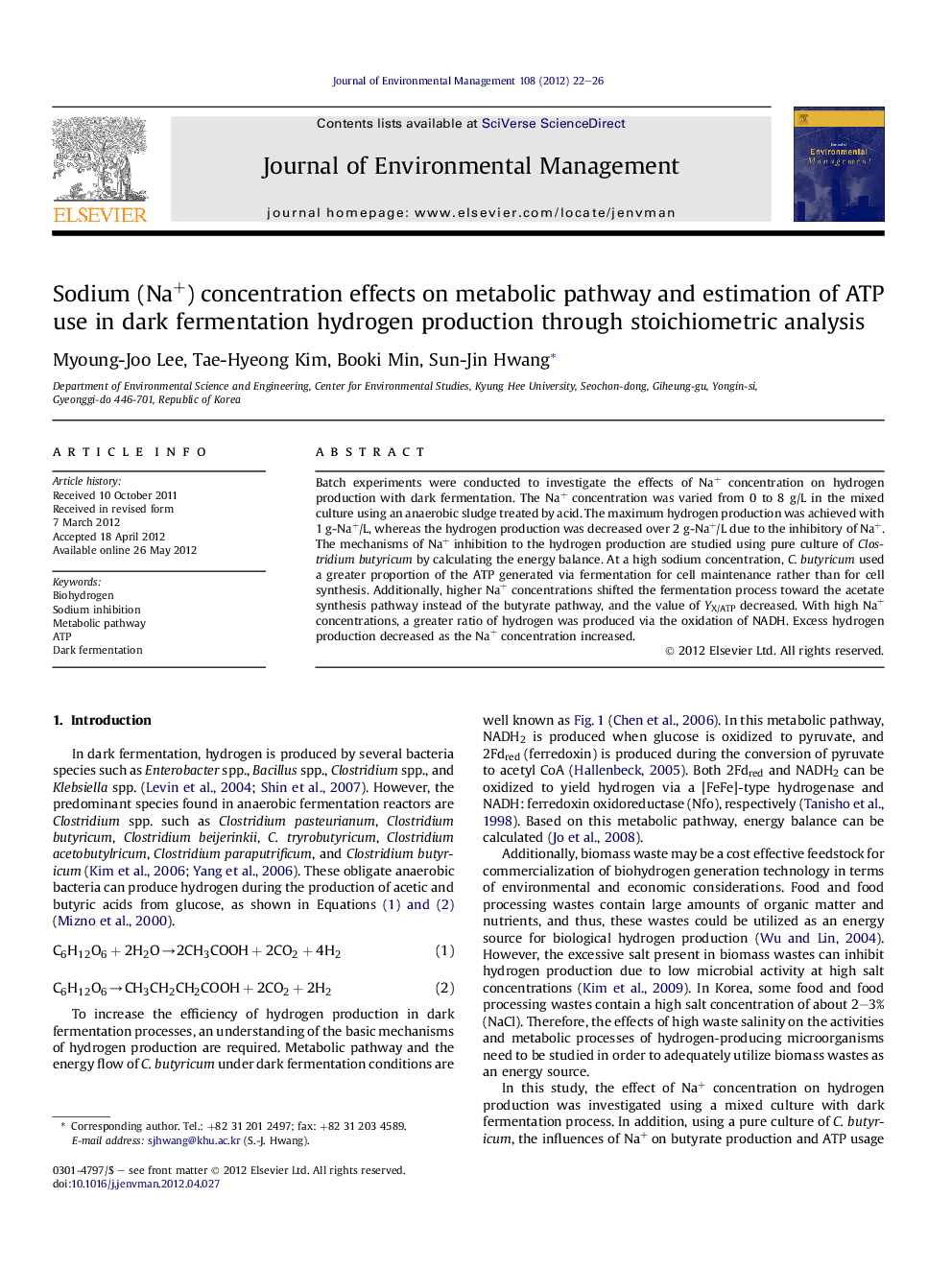| Article ID | Journal | Published Year | Pages | File Type |
|---|---|---|---|---|
| 1056765 | Journal of Environmental Management | 2012 | 5 Pages |
Batch experiments were conducted to investigate the effects of Na+ concentration on hydrogen production with dark fermentation. The Na+ concentration was varied from 0 to 8 g/L in the mixed culture using an anaerobic sludge treated by acid. The maximum hydrogen production was achieved with 1 g-Na+/L, whereas the hydrogen production was decreased over 2 g-Na+/L due to the inhibitory of Na+. The mechanisms of Na+ inhibition to the hydrogen production are studied using pure culture of Clostridium butyricum by calculating the energy balance. At a high sodium concentration, C. butyricum used a greater proportion of the ATP generated via fermentation for cell maintenance rather than for cell synthesis. Additionally, higher Na+ concentrations shifted the fermentation process toward the acetate synthesis pathway instead of the butyrate pathway, and the value of YX/ATP decreased. With high Na+ concentrations, a greater ratio of hydrogen was produced via the oxidation of NADH. Excess hydrogen production decreased as the Na+ concentration increased.
► The effect of Na+ concentration on H2 production was investigated using a mixed culture and Clostridium butyricum. ► The type of inhibition by Na+ was non-competitive. ► More ATP was used for the maintenance of cellular viability under high Na+ conditions. ► Metabolic pathway was shifted from butyrate to acetate formation with increased Na+ condition.
